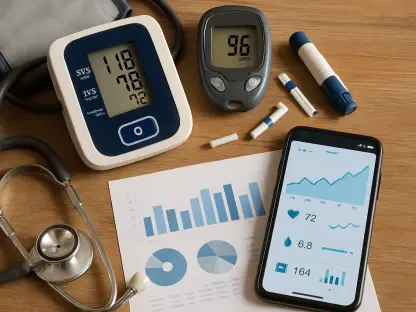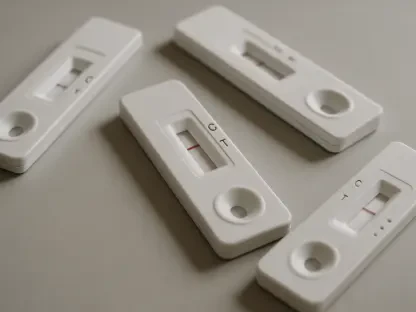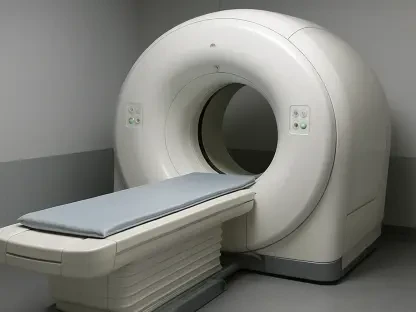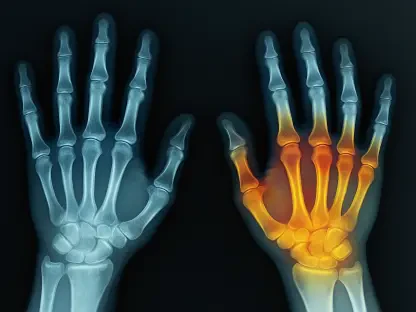In a significant milestone for healthcare in the Eastern Caribbean, Saint Lucia has successfully completed the Enhancing Health Infrastructure and Resilience Project. This achievement makes Saint Lucia the first OECS member state to fully implement this regional initiative. The project, generously funded by Direct Relief, a nonprofit organization, and executed with the OECS Commission, aims to strengthen the country’s health infrastructure. This enhancement comes in response to past disasters, such as Hurricane Beryl, and ongoing challenges like the COVID-19 pandemic, improving the readiness and resilience of healthcare services in the region.
Strengthening Healthcare Infrastructure
The successful completion of the Enhancing Health Infrastructure and Resilience Project marks a pivotal step forward for Saint Lucia. By addressing critical gaps in the health sector, the initiative aims to fortify the nation’s ability to respond effectively to emergencies and disasters. The contribution of essential medical equipment, including the provision of oxygen concentrators, plays a major role in this effort. These oxygen concentrators are indispensable in ensuring a stable supply of medical oxygen, which is essential during health crises and natural disasters.
Dr. Roxanne Brizan-St. Martin from the OECS Commission emphasized the regional importance of reinforcing health systems. She noted that improving these systems ensures continuous care during crises and significantly enhances the overall resilience of the healthcare infrastructure. This proactive approach will help mitigate the impacts of future emergencies, safeguard lives, and maintain uninterrupted health services. The emphasis on preparedness and resilience reflects a strategic vision for both immediate and long-term healthcare improvements in Saint Lucia and the wider region.
Regional Collaboration and Long-term Goals
Permanent Secretary Jenny Daniel stressed the Ministry of Health’s commitment to leveraging this new equipment to support uninterrupted treatment during pandemics or natural disasters. This commitment aligns with the ministry’s mandate to preserve life and reduce premature deaths. The equipment represents a crucial resource in achieving the ministry’s goals, providing the means to maintain essential health services even under challenging conditions. This initiative underscores the value of planning and foresight in ensuring a robust and capable health system.
Health Minister Moses Jn Baptiste highlighted the significance of collaboration and careful planning in enhancing healthcare delivery and outcomes in Saint Lucia. He expressed profound gratitude to Direct Relief and the OECS Commission for their invaluable contributions. This partnership serves as a testament to the power of regional solidarity, stakeholder collaboration, and the shared goal of building resilient health systems. The project exemplifies how coordinated efforts can lead to substantial improvements in healthcare infrastructure, benefiting the entire population.
Enhanced Emergency Response
The introduction of new medical equipment is expected to substantially improve Saint Lucia’s emergency response capabilities. By bolstering the healthcare delivery system, the initiative aims to protect the health and well-being of the nation’s citizens. The importance of having reliable and efficient medical equipment cannot be overstated in times of crisis. It ensures that healthcare facilities remain functional and capable of meeting the needs of patients, regardless of the external challenges they face.
More than just an immediate solution to current healthcare issues, the project sets a precedent for future initiatives. It illustrates the effectiveness of regional and international cooperation in achieving sustainable healthcare goals. The ability to adapt and grow in resilience is critical for any nation, and this project demonstrates Saint Lucia’s commitment to these principles. As a result, the country is better equipped to handle future health emergencies, ensuring a higher standard of care for all.
A Model for Future Initiatives
The successful implementation of the Enhancing Health Infrastructure and Resilience Project in Saint Lucia serves as a model for similar initiatives across the Caribbean and other regions. It highlights the importance of preparedness, collaboration, and strategic investment in healthcare infrastructure. The lessons learned from this project can guide future efforts to enhance health systems’ resilience in other OECS member states and beyond.
Looking ahead, it will be essential to continue monitoring and assessing the impact of the new equipment on healthcare delivery and emergency response. By doing so, Saint Lucia can ensure that these improvements are sustainable and that the healthcare system continues to evolve in response to emerging challenges. Ongoing training and support for healthcare professionals will also be vital in maximizing the benefits of the new equipment and ensuring its effective use in the long term.
Conclusion
In a major milestone for healthcare in the Eastern Caribbean, Saint Lucia has successfully wrapped up the Enhancing Health Infrastructure and Resilience Project. This notable achievement positions Saint Lucia as the first OECS (Organization of Eastern Caribbean States) member state to fully implement this significant regional initiative. Funded generously by Direct Relief, a nonprofit organization, and executed in collaboration with the OECS Commission, this project aims to bolster the country’s health infrastructure substantially. The considerable enhancement responds to past natural disasters, such as Hurricane Beryl, and addresses ongoing challenges like the COVID-19 pandemic. The project’s success improves the readiness and resilience of healthcare services across the region, ensuring that medical facilities and professionals are better equipped to handle both current and future health crises. This accomplishment marks a notable advancement in how healthcare services are delivered, setting a precedent for other nations in the region to follow.









